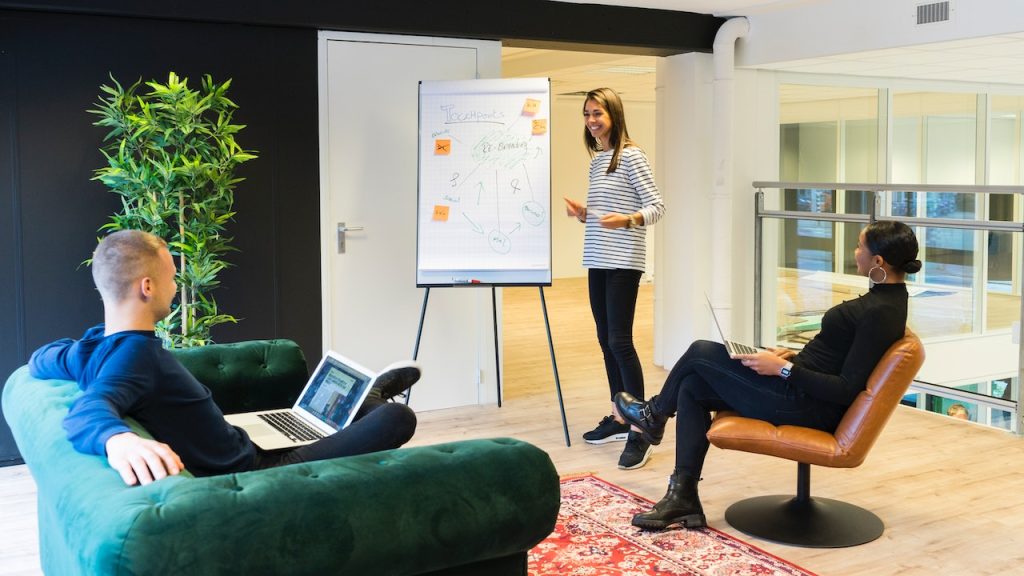We surveyed 530 people and found that almost half [49%] did not feel supported to grow in their workplace, a further 30% said they felt only somewhat supported, while just 21% said they felt very supported. The same research also found that a lack of opportunity for career development was the second highest reason for people leaving their organisations.

How important is growth to each of us is an individual?
Research by Quantum Workplace suggests that opportunities to develop and utilise strengths in the workplace is as important to motivation and engagement as trust in the senior leadership and belief in the future success of the organisation.
Humans have an innate desire to explore and seek information. The act of seeking information is in itself a fulfilling activity, and most people will always have some sort of to-do list, future goal, plan, or something they want to achieve or see.
A workplace that can support and offer opportunities to fulfil this desire is going to be more successful at engaging and motivating its employees that one that doesn’t offer those opportunities.
And growth doesn’t just need to be about climbing the career ladder or getting a bigger and fancier job title. As well as financial, career, and professional growth, personal growth can be a big motivator for many people, who may be motivated by things completely unrelated to their day-job.
It makes sense for employers to encourage their people to pursue their personal goals especially since our work and personal lives are becoming increasingly blurred. Creating opportunities for people to talk about their personal interests and goals outside of the workplace and to share their successes in these spaces can be good motivators, especially those who are earlier on in their careers.
These opportunities can make the workplace feel more fun and create deeper connections between the people in the organisation – both of which will also help increase feelings of inclusion and belonging.

How equitable are opportunities for development growth in the workplace?
Research has shown that more than 70% of sponsors are the same gender or race as their proteges hindering leadership diversity. Almost 3/4 of organisations select individuals for development opportunities based on the view of a single subjective nomination rather than an objective and consistent review of an individual’s performance. Mechanisms such as referral schemes compound this issue by encouraging people to nominate people they know for peer-level roles, nominees who all-too-often look and think like the nominator.
Affinity bias has a huge part to play in this issue. As humans, we tend to seek out the things that feel familiar or safe, things we can relate to and understand easily. We do this unconsciously, and this bias can influence our judgement significantly when it comes to the decisions we make in the workplace. When it comes to how much we support and value the people around us, this is a strong possibility we might lean towards those who are more similar to us.

What can organisations do to support equitable development opportunities?
It’s time to start being honest about how equitable development opportunities are in our organisations. A good starting point would be to understand the baseline and to consider how equitably development opportunities distributed. Once you’ve got a baseline, you can think about setting a goal.
Next would be to look at how inclusive your nomination and selection process is for career development opportunities. If the process relies on nominations from an individual, without much evidence to objectively demonstrate the nominee’s career performance, the process is open to bias and could easily leave whole groups of people who are less represented in your organisation, particularly in leadership, being overlooked. Consider a diverse selection panel and consistent application/scoring process. Also consider whether people should be able to self-nominate and how easy it is for a diverse employee group to access those opportunities.
Lastly, it is important that organisations recognise the value of giving their people the time and space for career and personal development at. Shifting organisational cultures around time is a challenge, and leaders may need to be supported to role model the behaviours and the mentality the encourage a growth mindset within the organisation. right track, we can support with developing your leaders to be authentically inclusive, be authentic allies, and lead organisational culture change that builds engagement, motivation, and opportunities for everyone in the organisation to grow together.
Allyship & Psychological Safety
Allyship is increasingly pitched as a key player in the drive for workplace inclusion which makes this programme a ‘need to have’ for all organisations shining a spotlight on diversity and inclusion or acting on a vision to build high-performing teams.
Using a workshop style approach, we explore what is meant by terms such as ‘bystander effect’, ‘psychological safety’ and ‘privilege’ and practical ways we can all be active allies…